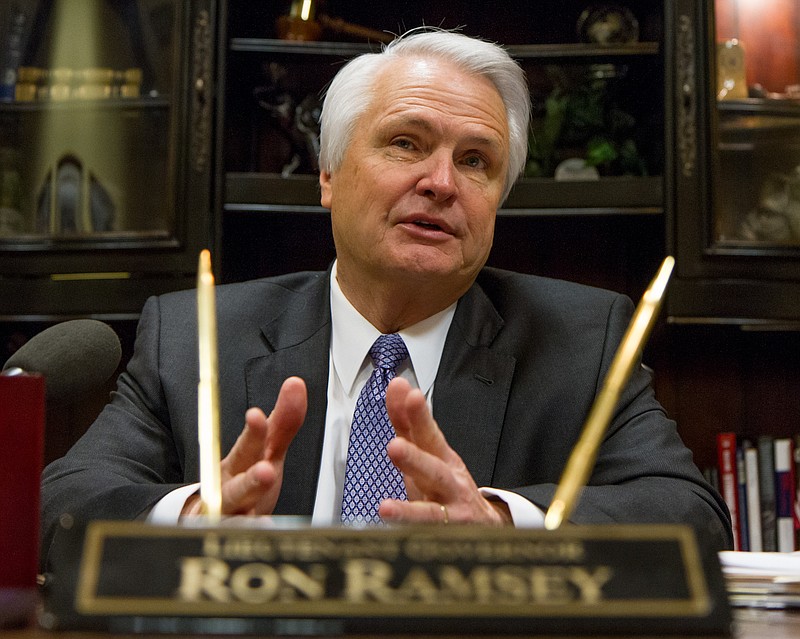NASHVILLE - Tennessee Senate Speaker Ron Ramsey today said he plans to vote no on a controversial municipal de-annexation bill that is scheduled to come up on the Senate floor today.
The Republican speaker also told reporter that because the measure is last on a lengthy list of bills up for consideration, the measure likely won't be voted on today.
Right now, the previously House-passed bill, sponsored by Sen. Bo Watson, R-Hixson, and Rep. Mike Carter, R-Ooltewah, in the lower chamber, applies to just five cities: Chattanooga, Memphis, Knoxville, Kingsport and tiny Cornersville.
Republican Gov. Bill Haslam, a former Knoxville mayor, earlier told reporters he remains concerned about the bill. But the governor wouldn't say if it would be a candidate for a veto, the Commercial Appeal reported.
Memphis Mayor Jim Strickland has been adamant in his opposition, saying it will cost Memphis some $27 million.
Haslam told reporters that "concerns me. You really have Knoxville and Chattanooga, where as I understand it there's an impact but a smaller impact. Memphis is obviously the biggest one and as I said before I do have a concern about that, the impact on Memphis's finances."
In light of Memphis' financial challenges "around pensions and everything else," Haslam said "I think doing that [de-annexation] at this point in time raises some concerns," the Commercial Appeal reported.
"I'm not going to say if it's a potential veto or not. Mayor Strickland called me about 30 minutes ago and I just ran into a group of Memphis city councilmen when I walked into this room who are down here working on that. I think it's a very obvious concern you'd have if you're one of the people working on Memphis city finances."
Ramsey, whose district includes Kingsport and intends to remove it from the bill, was asked by reporters today whether he considers the bill fair.
"That's a good question," Ramsey said. "That's the reason I'll vote no on the bill."
He went to say cities acted legally for decades to annex property under the then-annexation law. That changed in 2014 when Carter and Watson passed a law repealing cities' ability to annex by municipal ordinance. Annexations are now done by consent.
Noting he himself had pushed for annexation by consent since his first 1992 election, the Ramsey said "we finally passed that" in 2014 "after decades of trying. We set a line in the sand that from this point forward, anybody that's annexed has the right to vote on this.
"But," the speaker added, "now we're reaching back to get those that were annexed, legally under the law, by contract. And there is a way to be de-annexed [under current law] if 'cities] are not fulfilling their plan of services" to areas that have been annexed.
Alluding to Carter, an attorney who fought on behalf of Hamilton County government some years back during a spate Chattanooga annexations, Ramsey said "it kind of aggravates me just a tad that the House sponsor included Kingsport in the bill without asking me. Until about three or four weeks ago when the bill started moving in the House, I didn't even know Kingsport was in the bill."
Ramsey said that Carter's reasoning for picking the cities he did was their actions were "the most egregious' - that's an interesting definition - in annexation."
He defended Kingsport's actions, saying that the city built a school in de-annexed territory, several fire stations and review their plan of service as required under the 1998 Smart Growth Act.
"But foremost," the speaker said, "you don't include [a city] without asking" the senator in whose district the city sits. "And I had no idea it was in the bill."
